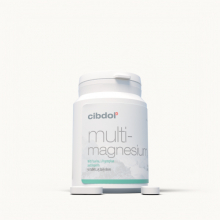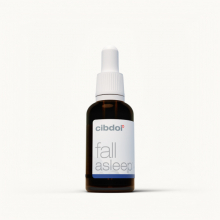Is Magnesium or Melatonin Better for Sleep?
Published:
Are you struggling to get a good night's rest? Wondering if magnesium or melatonin is the better option for improving your circadian rhythm? Look no further! Both magnesium and melatonin are popular natural sleep aids that can help address your sleep issues. Quality sleep is vital for overall well-being, as lack of it can lead to various health problems. By understanding the benefits of magnesium and melatonin, you can take steps towards enhancing your sleep quality and finding an effective remedy.
Contents:
- Understanding the Difference: Melatonin vs Magnesium
- Comparing Effectiveness: Magnesium vs Melatonin
- Which is Better for Sleep Quality?
- Overdosing Side Effects: Impact on Body Functions
- Natural Ways to Boost Magnesium and Melatonin Levels
- Safely Using Magnesium and Melatonin for Sleep
- Conclusion: Choosing the Best Sleep Aid
- FAQs
Melatonin, a hormone produced by the pineal gland, plays a crucial role in regulating our sleep-wake cycle and circadian rhythm. When melatonin production is disrupted or insufficient due to factors like stress or melatonin deficiency, using melatonin supplements may help restore balance to our body functions. On the other hand, magnesium has been found to promote relaxation and calmness, making it an excellent choice for those struggling with morning grogginess or cramping. Additionally, certain medications can also impact our circadian rhythm and body functions.
So, which one should you choose? Let's look at the effects of both magnesium and melatonin on sleep to determine which might be more suitable for your rest and circadian rhythm. Based on research, we can determine which option is best for you.

Understanding the Difference: Melatonin vs Magnesium
Melatonin: Regulating Sleep-Wake Cycles
Melatonin, a hormone produced by the pineal gland in the brain, plays a crucial role in regulating sleep-wake cycles and rest. When darkness falls, melatonin levels rise, signaling to people that it's time to sleep. By interacting with receptors in the brain, melatonin helps initiate and maintain sleep throughout the night. Adding magnesium supplements to your diet or incorporating yogurt can also support rest.
However, it's essential for people to note that melatonin is not a sedative or sleep aid in the traditional sense. Instead, it acts as a synchronizer for our internal body clock, known as the circadian rhythm. This hormone helps align our sleep patterns with natural day-night cycles. It is important to consult a doctor before considering magnesium supplements for rest.
Magnesium: Relaxation and Calming Influence
On the other hand, magnesium is a mineral renowned for its ability to promote rest and calmness within our bodies. It plays an integral role in various physiological processes, including nerve function and muscle relaxation. Magnesium is often used as a natural sleep aid for those with sleep problems.
When we encounter stress or anxiety during the day, magnesium assists in reducing these sleep problems by binding to gamma-aminobutyric acid (GABA) receptors in our brain. GABA is an inhibitory neurotransmitter that helps quieten neural activity and induce relaxation, promoting natural sleep aids.
Furthermore, magnesium also aids in regulating cortisol levels—the primary stress hormone—and melatonin deficiency by preventing their release into our bloodstream. By doing so, this mineral contributes to creating an environment conducive to restful sleep. Additionally, using an app can also help in tracking and managing melatonin deficiency.
The Distinction: Direct Impact vs Overall Support
While both the melatonin app and magnesium app play significant roles in promoting healthy sleep patterns, they differ in their mechanisms of action. The melatonin app directly influences your ability to fall asleep and stay asleep by regulating your circadian rhythm.
In contrast, magnesium supports overall relaxation without directly inducing drowsiness or affecting your internal body clock like melatonin does. Its calming effects contribute to creating an optimal environment for restful slumber but do not have a direct impact on sleep initiation. Additionally, incorporating a magnesium app into your routine can help you track your magnesium intake and ensure you're getting enough of this essential mineral for better sleep.
It's important to note that melatonin is often used as a supplement to address specific sleep issues, such as jet lag or insomnia. On the other hand, magnesium is generally incorporated into a balanced diet or taken as a dietary supplement to support overall relaxation and well-being.
To summarize, while melatonin directly affects sleep by regulating your body's internal clock, magnesium supports relaxation and provides a calming influence. Both are valuable in promoting healthy sleep patterns but serve different purposes. Whether one is better than the other depends on your specific needs and circumstances.
Incorporating lifestyle changes such as maintaining a consistent sleep schedule, creating a relaxing bedtime routine, and ensuring a balanced diet rich in magnesium can all contribute to improving your sleep quality, especially if you are dealing with melatonin deficiency. Consulting with a healthcare professional can help determine the best approach for addressing any sleep concerns you may have related to melatonin deficiency.
Comparing Effectiveness: Magnesium vs Melatonin
Melatonin supplements are effective for short-term use in regulating sleep patterns.
Melatonin is a hormone produced naturally by the body to regulate sleep-wake cycles. However, some individuals may experience difficulty in producing enough melatonin due to magnesium deficiency, leading to disrupted sleep patterns. In such cases, melatonin supplements can be beneficial for short-term use.
When taken as directed, melatonin can help reset the body's internal clock and promote better sleep. It is particularly useful for individuals who travel across time zones or work night shifts, as it can help them adjust their sleep schedule accordingly.
Melatonin has been found to be effective in managing certain sleep disorders like insomnia. By taking melatonin before bedtime, individuals with insomnia can experience improved sleep quality and reduced time spent tossing and turning.
Magnesium promotes better quality sleep by reducing stress and anxiety levels.
Magnesium is an essential mineral that plays a crucial role in various bodily functions, including promoting relaxation and reducing stress levels. Many people suffer from magnesium deficiency without even realizing it, which can have a negative impact on their overall well-being and sleep quality.
By supplementing with magnesium, individuals with melatonin deficiency can potentially improve their sleep by calming their nervous system and reducing anxiety levels. This mineral acts as a natural sedative, helping the body relax and prepare for a restful night's sleep.
Moreover, magnesium has been shown to enhance the production of gamma-aminobutyric acid (GABA), a neurotransmitter that helps regulate neuronal excitability and melatonin deficiency. By increasing GABA levels in the brain, magnesium promotes feelings of calmness and tranquility, making it easier to fall asleep and stay asleep throughout the night.
The effectiveness of each supplement may vary depending on individual needs.
While both melatonin and magnesium offer potential benefits for improving sleep quality, it's important to recognize that individual needs vary. Factors such as lifestyle habits, underlying health conditions, and personal preferences can influence which supplement may be more effective for an individual.
For individuals who struggle with sleep disorders like insomnia or jet lag, melatonin supplements may provide the necessary support to regulate their sleep patterns. On the other hand, those experiencing high levels of stress and anxiety that impact their sleep might find magnesium supplementation more beneficial.
It is worth noting that both melatonin and magnesium can be taken together in some cases, as they target different aspects of sleep regulation. However, it is advisable to consult with a healthcare professional before combining any supplements to ensure safety and effectiveness.
Which is Better for Sleep Quality?
Both magnesium and melatonin can contribute to improved sleep quality. Let's explore how each of these substances plays a role in promoting healthy sleep and which one may be more beneficial for you.
Magnesium, known for its muscle-relaxing properties, can aid in achieving deeper and more restful sleep, especially for those with melatonin deficiency. When our muscles are tense, it can be challenging to wind down and fall asleep peacefully. Magnesium helps alleviate muscle cramping and tension, allowing your body to relax fully at night. Incorporating magnesium-rich foods into your diet such as yogurt, whole grains, and leafy greens can provide an excellent source of this essential mineral for individuals with melatonin deficiency.
On the other hand, melatonin is a hormone that helps regulate our circadian rhythms. These internal clocks determine our sleep-wake cycles and influence the timing of various biological processes throughout the day. By taking melatonin as a supplement or consuming foods like cherries or walnuts that naturally contain melatonin, you can help establish a more consistent sleep pattern. This is particularly useful when dealing with jet lag or adjusting to changes in your daily routine.
It ultimately depends on individual needs and preferences. If you struggle with muscle tension or find it difficult to relax before bed, magnesium supplementation may be worth considering. On the other hand, if you have trouble maintaining a regular sleep schedule or experience disruptions due to travel or shift work, melatonin could be more beneficial.
Research suggests that combining both magnesium and melatonin may offer even greater benefits for enhancing sleep quality. However, always consult with a healthcare professional before starting any new supplements to ensure they align with your specific health needs.
Overdosing Side Effects: Impact on Body Functions
Taking excessive amounts of sleep aids such as melatonin or magnesium can have detrimental effects on various body functions and lead to health issues. It is essential to understand the potential side effects of these sleep aids and follow recommended dosages to avoid any adverse consequences during the sleep process.
Melatonin Overdose
Consuming higher doses than necessary can result in daytime drowsiness or headaches. Melatonin is a hormone that regulates sleep-wake cycles, and an overdose can disrupt these natural processes in the body. Excessive intake of melatonin may cause an onset of nausea, dizziness, or even digestive problems.
The brain plays a crucial role in regulating our sleep patterns, and when too much melatonin is introduced into the system, it can interfere with these delicate processes. While melatonin supplements are generally safe for short-term use, exceeding the recommended dose can lead to unwanted side effects.
Magnesium Overdose
On the other hand, high doses of magnesium, a vital sleep aid, can also have adverse effects on the body's functions. Although magnesium is essential for numerous bodily processes such as maintaining a healthy nervous system and supporting muscle function, excessive intake can cause digestive issues like diarrhea or stomach cramps.
Magnesium plays a pivotal role in over 300 enzymatic reactions within the body. However, taking more than the recommended dosage may overwhelm these processes and disrupt their normal functioning. It is important to strike a balance between meeting your magnesium requirements and avoiding excessive intake that could potentially lead to discomfort.
Importance of Following Recommended Dosages
To mitigate any risks associated with overdosing on either melatonin or magnesium, it is crucial to adhere to the recommended dosages provided by healthcare professionals. These guidelines are designed to ensure optimal benefits while minimizing any potential side effects.
Both melatonin and magnesium are essential components for proper bodily function; however, excessive amounts can upset this delicate balance. By following recommended dosages, you can avoid the onset of unwanted symptoms and maintain a healthy intake of these substances.
Natural Ways to Boost Magnesium and Melatonin Levels
Consuming magnesium-rich foods
One effective way to naturally boost magnesium levels in the body is by consuming foods that are rich in this essential mineral. Leafy greens, such as spinach and kale, are excellent sources of magnesium. Incorporating these vegetables into your diet can provide a significant increase in magnesium intake. Nuts like almonds and cashews are also high in magnesium content and make for a healthy snack option.
Getting sunlight exposure during the day
Another natural approach to regulating melatonin production at night is by getting exposure to natural sunlight during the day. Sunlight helps stimulate the production of serotonin, a precursor to melatonin. Spending time outdoors, especially in the morning or early afternoon, allows your body to absorb sunlight and promote healthy melatonin levels later on.
Practicing relaxation techniques
Engaging in relaxation techniques can be beneficial for both magnesium and melatonin levels. Techniques such as meditation or deep breathing exercises have been shown to enhance sleep quality by promoting relaxation and reducing stress levels. When you practice these techniques regularly, it can help improve your overall sleep patterns while also positively impacting your magnesium intake.
By incorporating meditation into your daily routine, you create an opportunity for calmness and tranquility before bedtime. Deep breathing exercises help slow down heart rate and activate the parasympathetic nervous system, signaling your body that it's time to relax and prepare for restful sleep.
It's important to note that while these natural methods can contribute to improving magnesium levels and regulating melatonin production, they may not be sufficient for everyone. In some cases, individuals may require additional support through supplements or other interventions.
Supplements can provide a concentrated dose of both minerals when dietary intake alone is insufficient or when specific deficiencies exist. However, it's crucial to consult with a healthcare professional before starting any new supplement regimen.
Safely Using Magnesium and Melatonin for Sleep
Many people wonder whether magnesium or melatonin is better. Both supplements have been shown to promote relaxation and improve sleep quality, but understanding how to use them safely is crucial for optimal results.
Taking Melatonin at the Right Time
Melatonin is a hormone that helps regulate the sleep-wake cycle. It can be particularly effective for individuals who struggle with falling asleep or experience jet lag. To maximize its benefits, it's important to take melatonin approximately 30 minutes before bedtime. This allows enough time for the supplement to be absorbed by the body and start working its magic.
Enhancing Magnesium Absorption
Magnesium is an essential mineral that plays a role in numerous bodily functions, including sleep regulation. While taking magnesium supplements can be beneficial, it's important to consider absorption and potential digestive issues. To improve absorption, it is recommended to take magnesium with food. This can help reduce any potential gastrointestinal discomfort and ensure that your body effectively absorbs this vital mineral.
Consulting a Healthcare Professional
Before incorporating any new sleep aid regimen into your routine, it is always advisable to consult with a healthcare professional. They can provide personalized guidance based on your specific needs and health conditions. They may recommend specific dosages or combinations of magnesium and melatonin based on their expertise.
It's worth noting that while both magnesium and melatonin are generally considered safe for short-term use in appropriate doses, long-term use should be discussed with a healthcare professional as there may be potential interactions or side effects associated with prolonged supplementation.
Conclusion: Choosing the Best Sleep Aid
In conclusion,Both have their own unique benefits. Magnesium helps to relax muscles and promote a sense of calmness, while melatonin regulates the sleep-wake cycle.
If you're looking for a natural way to improve your sleep quality, incorporating both magnesium and melatonin into your routine may be beneficial. They can work together synergistically to enhance your overall sleep experience.
However, it's important to note that individual responses may vary. What works for one person may not work for another. It's always best to consult with a healthcare professional before starting any new supplements or medications.
When using magnesium and melatonin, it's crucial to follow recommended dosages and avoid overdosing. Excessive intake of either supplement can lead to unwanted side effects and disrupt normal body functions.
To naturally boost your magnesium levels, consider consuming foods like leafy greens, nuts, seeds, and whole grains. For melatonin production support, create a bedtime routine that includes avoiding bright screens before bed and practicing relaxation techniques.
Remember that proper sleep hygiene plays a vital role in achieving restful nights. Establishing a consistent sleep schedule, creating a comfortable sleeping environment, and practicing relaxation techniques can all contribute to better sleep quality.
In conclusion, finding the best sleep aid depends on your individual needs and preferences. Experimenting with different methods under the guidance of a healthcare professional can help you discover what works best for you.
FAQs
Q: Can I take both magnesium and melatonin together?
A: Yes! Taking both magnesium and melatonin together can potentially enhance their effectiveness in promoting better sleep quality.
Q: Are there any potential side effects of taking too much magnesium or melatonin?
A: Yes, excessive intake of either supplement can cause adverse effects such as digestive issues (e.g., diarrhea), drowsiness during the day, and changes in blood pressure. It's important to follow recommended dosages.
Q: How long does it take for magnesium or melatonin to start working?
A: The onset of action can vary depending on the individual. Generally, magnesium may take a few days to weeks to show noticeable effects, while melatonin typically starts working within 30 minutes to an hour.
Q: Can I become dependent on magnesium or melatonin for sleep?
A: Both supplements are generally considered safe and non-addictive when used as directed. However, it's always best to use them as part of a comprehensive approach to improving sleep hygiene rather than relying solely on supplements.
Q: Can I use magnesium or melatonin if I have an underlying medical condition?
A: If you have any pre-existing medical conditions or are taking other medications, it's crucial to consult with your healthcare provider before starting any new supplements, including magnesium and melatonin. They can provide personalized advice based on your specific health needs.
















